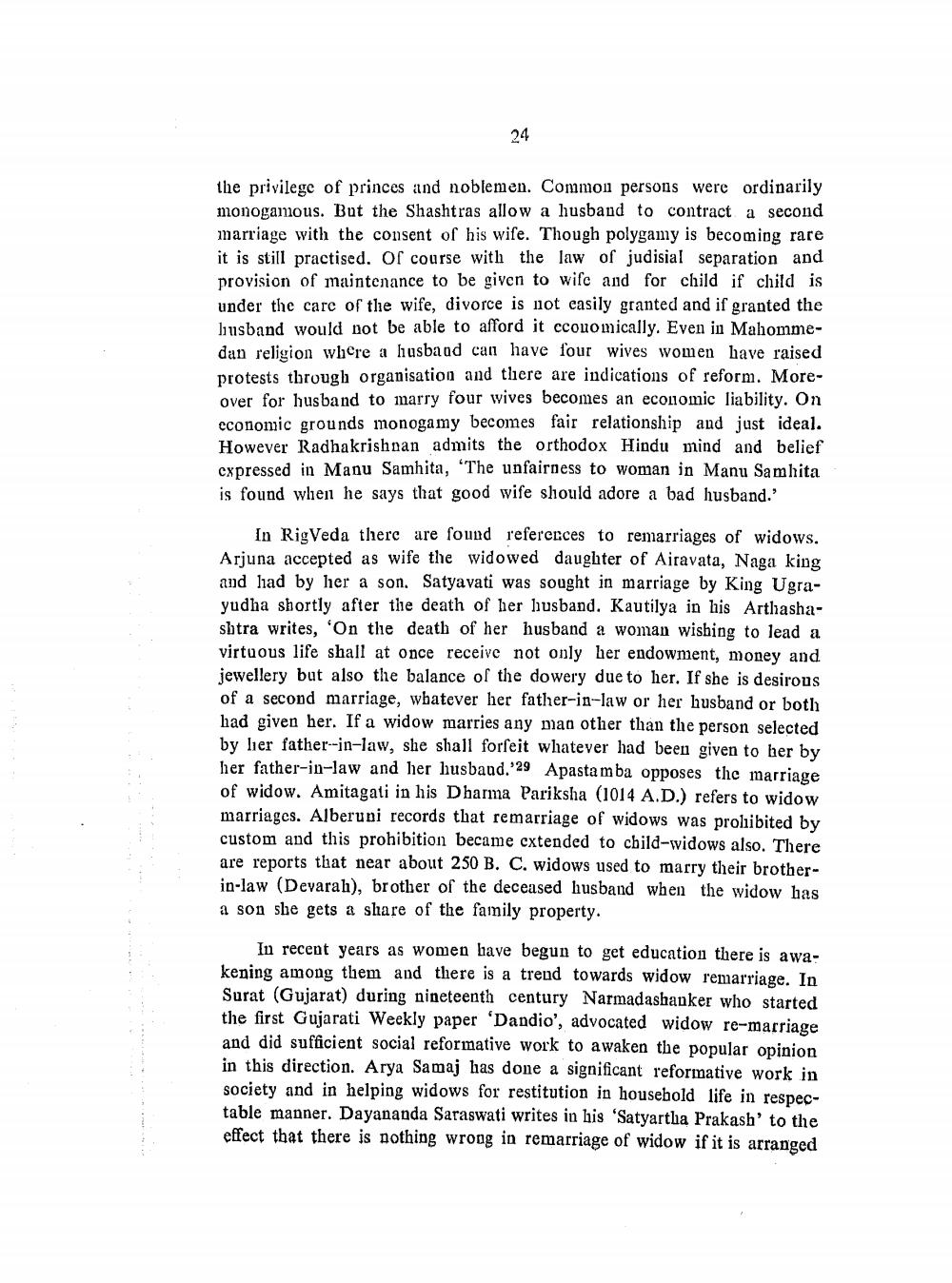________________
24
the privilege of princes and noblemen. Common persons were ordinarily monogamous. But the Shashtras allow a husband to contract a second marriage with the consent of his wife. Though polygamy is becoming rare it is still practised. Of course with the law of judisial separation and provision of maintenance to be given to wife and for child if child is under the care of the wife, divorce is not easily granted and if granted the husband would not be able to afford it economically. Even in Mahommedan religion where a husband can have four wives women have raised protests through organisation and there are indications of reform. Moreover for husband to marry four wives becomes an economic liability. On economic grounds monogamy becomes fair relationship and just ideal. However Radhakrishnan admits the orthodox Hindu mind and belief expressed in Manu Samhita, "The unfairness to woman in Manu Samhita is found when he says that good wife should adore a bad husband.'
In RigVeda there are found references to remarriages of widows. Arjuna accepted as wife the widowed daughter of Airavata, Naga king and had by her a son. Satyavati was sought in marriage by King Ugrayudha shortly after the death of her husband. Kautilya in his Arthashashtra writes, 'On the death of her husband a woman wishing to lead a virtuous life shall at once receive not only her endowment, money and jewellery but also the balance of the dowery due to her. If she is desirous of a second marriage, whatever her father-in-law or her husband or both had given her. If a widow marries any man other than the person selected by her father-in-law, she shall forfeit whatever had been given to her by her father-in-law and her husband. 29 Apastamba opposes the marriage. of widow. Amitagati in his Dharma Pariksha (1014 A.D.) refers to widow marriages. Alberuni records that remarriage of widows was prohibited by custom and this prohibition became extended to child-widows also. There are reports that near about 250 B. C. widows used to marry their brotherin-law (Devarah), brother of the deceased husband when the widow has a son she gets a share of the family property.
In recent years as women have begun to get education there is awakening among them and there is a trend towards widow remarriage. In Surat (Gujarat) during nineteenth century Narmadashanker who started. the first Gujarati Weekly paper 'Dandio', advocated widow re-marriage and did sufficient social reformative work to awaken the popular opinion in this direction. Arya Samaj has done a significant reformative work in society and in helping widows for restitution in household life in respectable manner. Dayananda Saraswati writes in his 'Satyartha Prakash' to the effect that there is nothing wrong in remarriage of widow if it is arranged




